Why is my monstera not growing split leaves? Plant experts reveal 3 common causes – plus tips on how to get leaf fenestration once again
The iconic foliage of this jungle houseplant isn't complete without its fenestrations

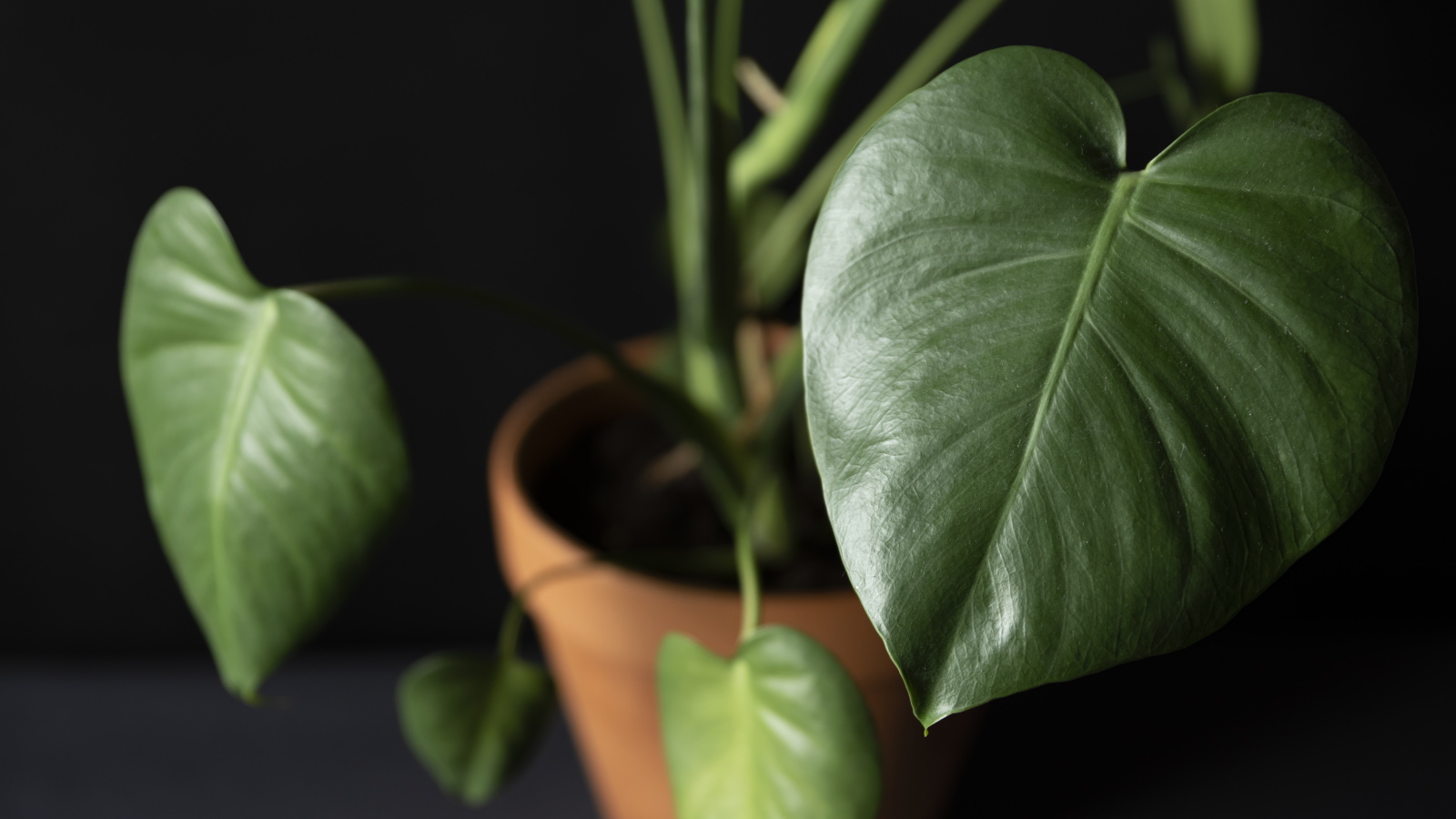
The beautiful foliage of monsteras is what makes them such popular houseplants. Whether you grow a large Monstera deliciosa or a smaller Monstera adansonii, watching new leaves unfurl and show off their iconic splits, which gives them the common name Swiss cheese plant, is a rewarding sight as a plant parent.
These splits are known as fenestrations and so long as you keep on top of essential monstera care, your monstera will happily produce them as it grows new leaves. However, it's not uncommon to see your monstera not growing split leaves, usually indicating something needs adjusting in its growing environment.
Don't panic though, it's extremely easy to fix and sometimes it isn't anything to worry about at all. Here, plant experts reveal three common causes of a monstera reverting to un-fenestrated foliage and what you can do to fix it.
What are leaf fenestrations?
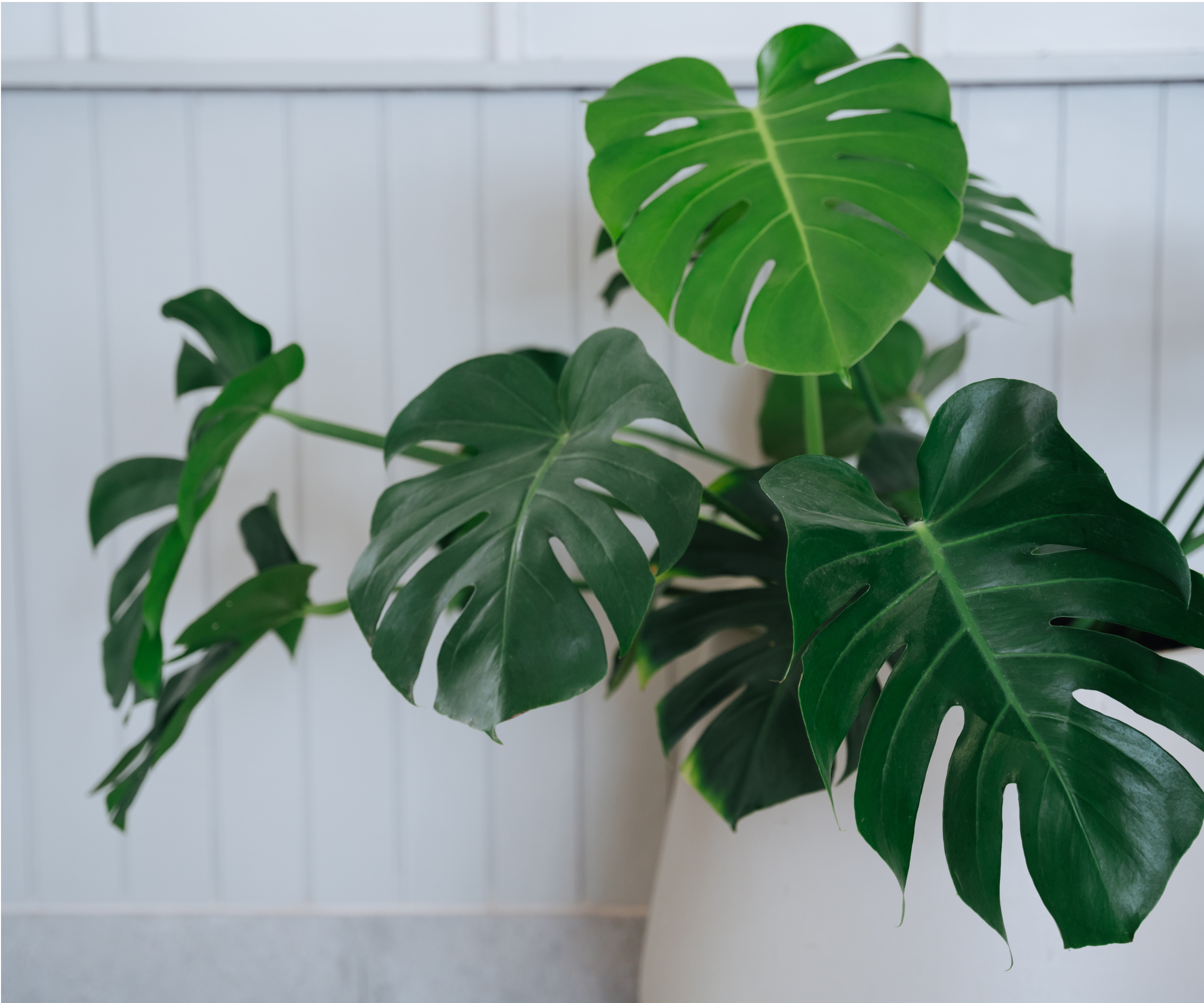
Before jumping in with how to correct a monstera not growing split leaves, you might be intrigued as to what leaf fenestrations actually are and what purpose they serve.
'Fenestrations, or the classic holes and splits you immediately recognize on a monstera, actually exist to help lower leaves on the plant receive sunlight,' explains Atlanta-based plant expert Ara Flink.
'In nature, these plants will climb up a large tree and grow massive leaves that can span up to several feet in length.
'To ensure that the base of the plant continues to receive sunlight for photosynthesis, the plant evolved to grow these holes so that these new large leaves aren't blocking the under growth from getting light,' she adds.
Design expertise in your inbox – from inspiring decorating ideas and beautiful celebrity homes to practical gardening advice and shopping round-ups.
Without leaf fenestrations, lower monstera leaves may struggle to thrive. It can result in a monstera drooping, among other problems, which is why it's key to grow your monstera in the right conditions for fenestrations to occur.

Ara lives in Atlanta, GA with well over 100 houseplants. She loves sharing ways to make plant care easy for plant parents. Ara started her business Propagation Diaries with the aim of enhancing the beauty and quality of your plant collection. Specially designed products and growing mediums will aesthetically and functionally improve the experience of growing plants.
3 reasons your monstera doesn't have fenestrations
You shouldn't panic if your monstera lacks leaf fenestration as it usually doesn't affect the overall health of the plant. However, having plenty of fenestrations is an indication of a thriving monstera and, as mentioned above, it helps provide light to the lower leaves of the plant. Plus, the split leaves of monsteras are beautiful to look at and often the reason so many indoor gardeners invest in them in the first place. If you spot your monstera not growing split leaves, there's a likely explanation and resolution:
1. Your monstera is still young
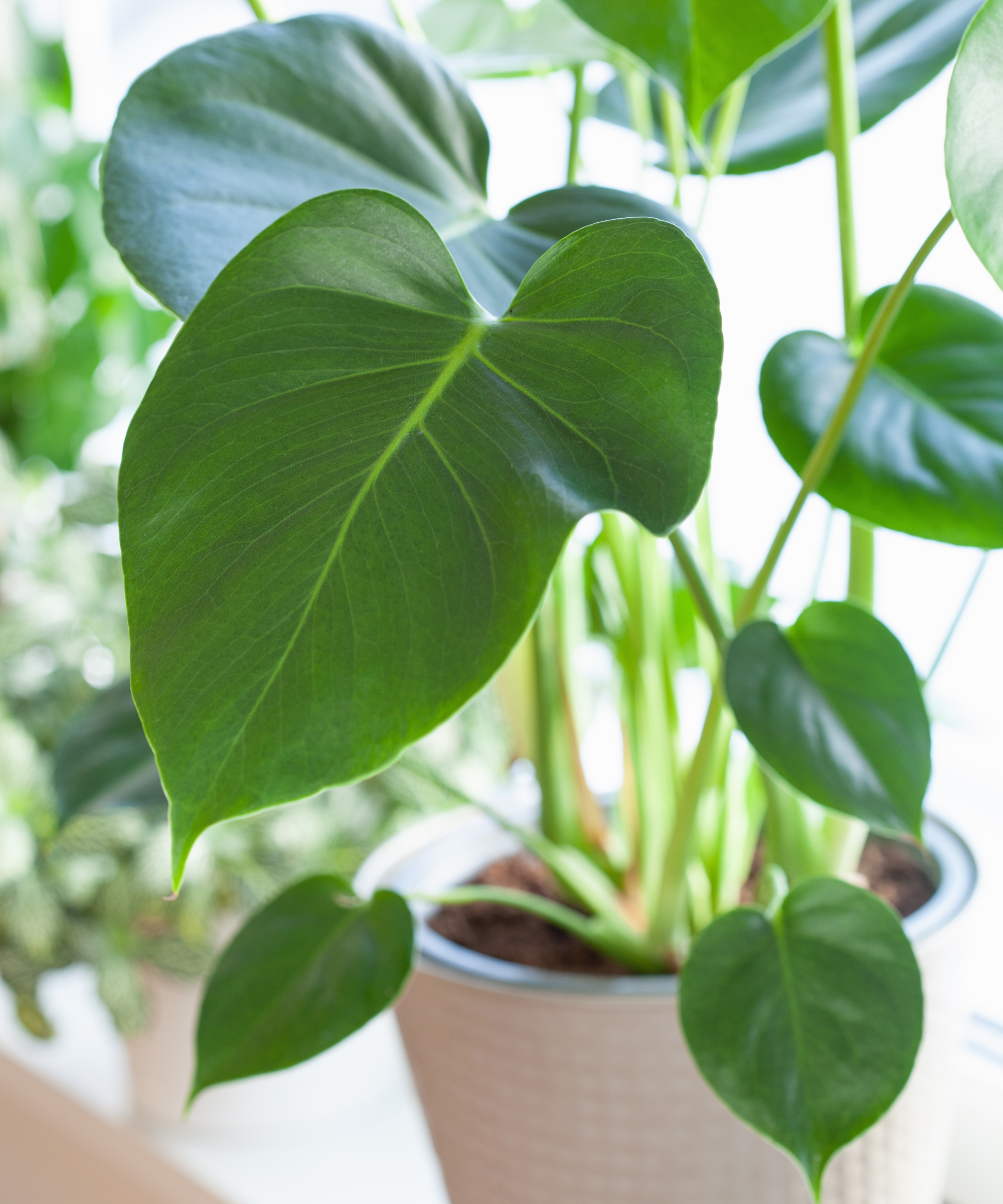
'Fenestrations in monstera leaves are a natural part of the plant reaching maturity,' says Lotte Berendsen, a certified botanist from the PlantIn app. A young plant, therefore, is less likely to have split leaves.
This makes sense when you consider leaf fenestrations exist to aid light exposure of lower leaves in dense jungle planting; when a plant is young, it doesn't have so many large leaves blocking light.
'Juvenile plants usually come in smaller pots, and have round almost heart shaped leaves,' notes Ara. 'Their stems also tend to be on the thinner side,' she adds.
If this is the case for your monstera, you may just need to wait to see split leaves - it can take anywhere between two-to-three years before leaf fenestrations form on new growth.
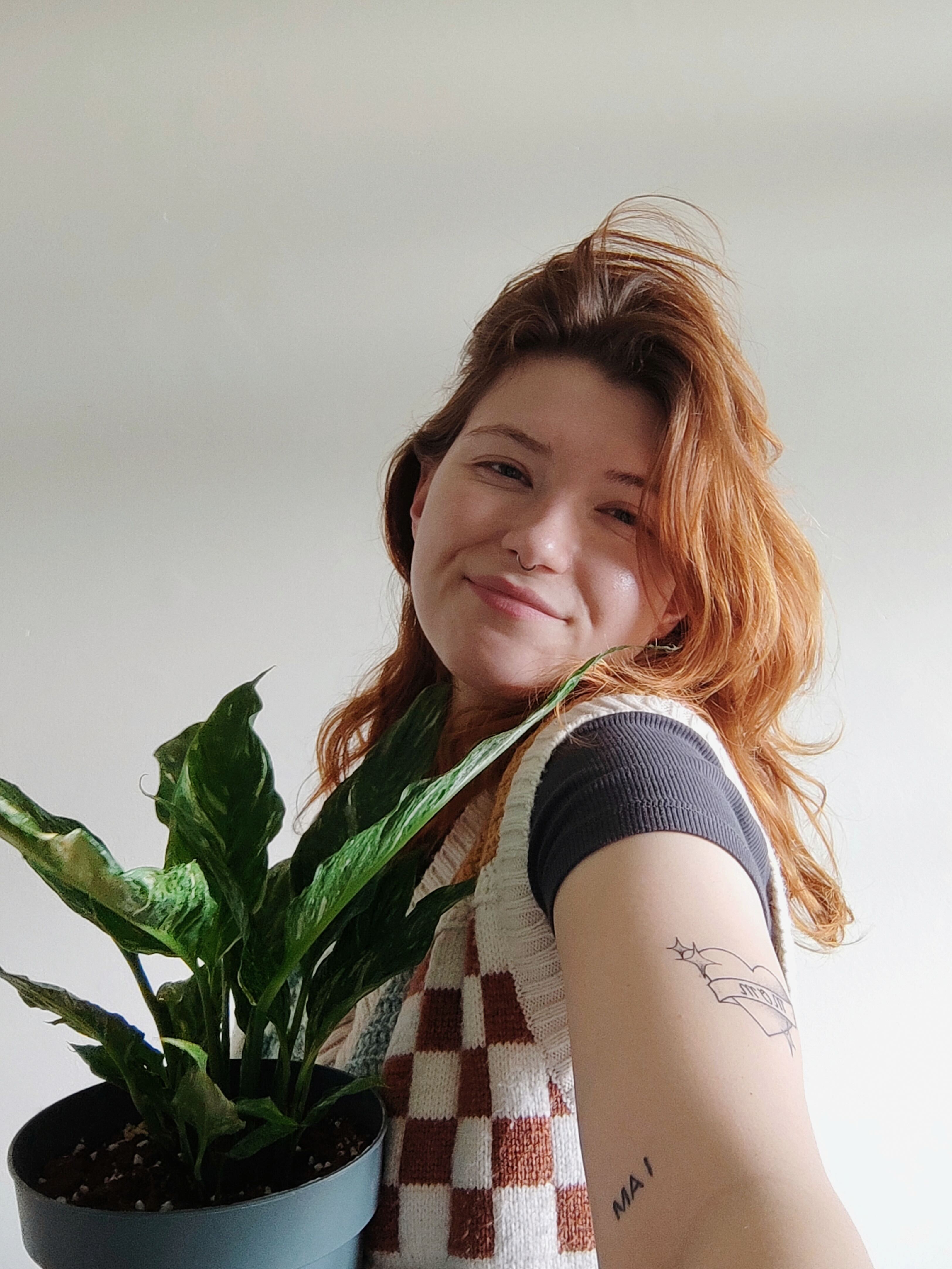
Lotte is a gardening enthusiast, writer, and plant expert at PlantIn, where she provides customers with detailed care and treatment plans
2. Your monstera needs more light
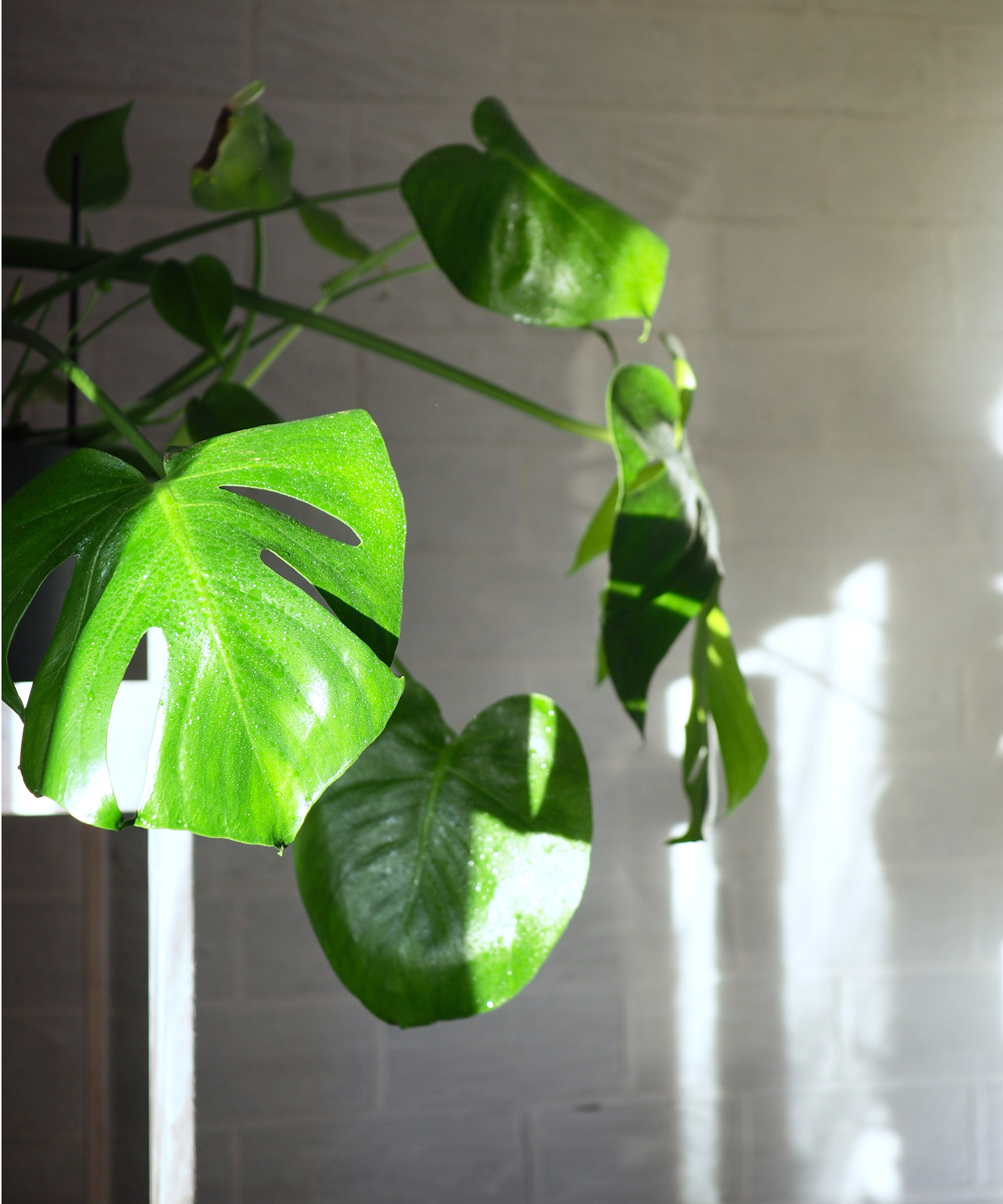
If you have a mature monstera not growing split leaves, the likely culprit is insufficient light. Without plenty of light, your monstera doesn't know to produce those splits to let the light through.
'The more light the plant gets, the faster it will grow, and the sooner it will produce mature and fenestrated leaves,' says Lotte. 'If you find that your monstera continues to grow small, un-fenestrated leaves, consider offering your plant more light and watch how fast your plant will grow,' she adds.
In some cases, your monstera may have gone from producing perfectly fenestrated leaves to only growing un-fenestrated leaves; especially likely if you have moved your monstera to a new spot where it receives less light than before. Take this as a sign to move it back to a well-lit position.
'If it is not receiving a good light source, it is recommended to supplement lighting with a strong grow light for houseplants large enough to cover the whole plant,' says Ara. This large grow light from Amazon is a good choice for a monstera.
3. Your monstera needs better support
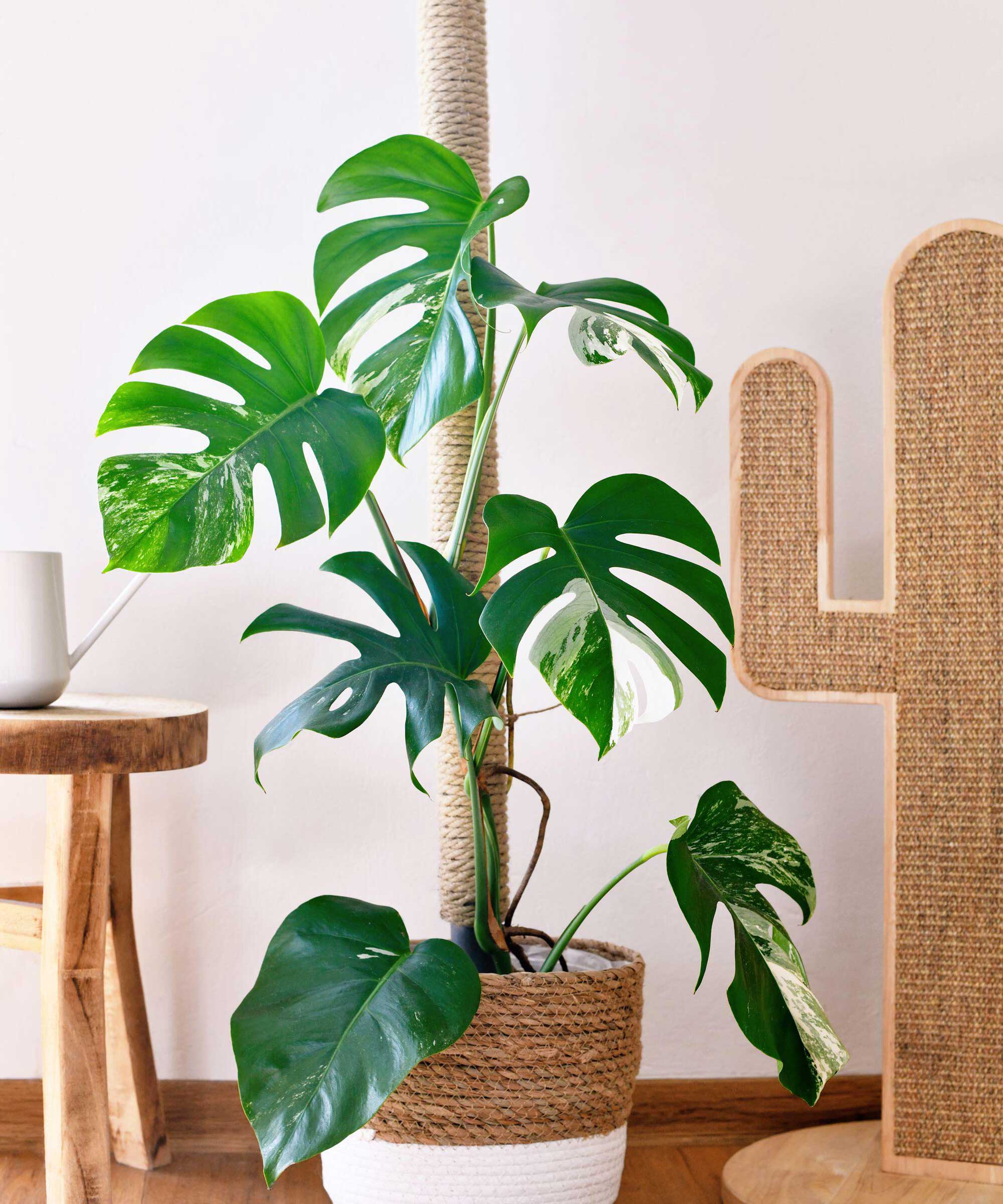
If your monstera sits in a position where it gets plenty of light and has previously grown beautiful fenestrated leaves but now only grows solid leaves, it might mean it needs some extra support as a bigger plant.
'Plants needing better conditions may let you know by reverting from a fenestrated leaf back to an un-fenestrated leaf,' says Ara. 'Better conditions include an adequate support system,' she adds.
You might have seen monsteras growing on moss poles (from Amazon). These are used to offer support for these plants that climb tree trunks in their natural habitat, towards the light.
'This support allows the plant to receive more light and reach maturity faster. As the plant matures, it grows more leaves with more fenestrations,' Lotte explains.
Consider using a moss pole or houseplant trellis - like this trellis for indoor plants from Amazon - to allow your monstera to stand tall. This can also help keep your monstera neat and compact in your home.
FAQs
Can existing monstera leaves grow splits?
No, existing monstera leaves will not split. The splits of monstera leaves are known as fenestrations and they develop on new leaves as the plant matures. You can encourage fenestrated leaves by providing your monstera with lots of bright light.
How do you encourage a monstera to grow bigger leaves?
You can encourage your monstera to grow larger leaves by providing ample light. Monstera thrive in bright, indirect light and will grow larger, fenestrated leaves as a result. Take care not to place your monstera in a direct sun position, however, as this could cause leaf scorch.
As your monstera grows bigger and matures, you should see more fenestrated leaves. For this reason, you might also spot less split leaves when growing a monstera in water, as they can't always grow to their full potential hydroponically. It could be useful to lightly prune your monstera to remove any leaves blocking light to lower parts of the plant to encourage more split leaves.

Tenielle is a Gardens Content Editor at Homes & Gardens. She holds a qualification in MA Magazine Journalism and has over six years of journalistic experience. Before coming to Homes & Gardens, Tenielle was in the editorial department at the Royal Horticultural Society and worked on The Garden magazine. As our in-house houseplant expert, Tenielle writes on a range of solutions to houseplant problems, as well as other 'how to' guides, inspiring garden projects, and the latest gardening news. When she isn't writing, Tenielle can be found propagating her ever-growing collection of indoor plants, helping others overcome common houseplant pests and diseases, volunteering at a local gardening club, and attending gardening workshops, like a composting masterclass.